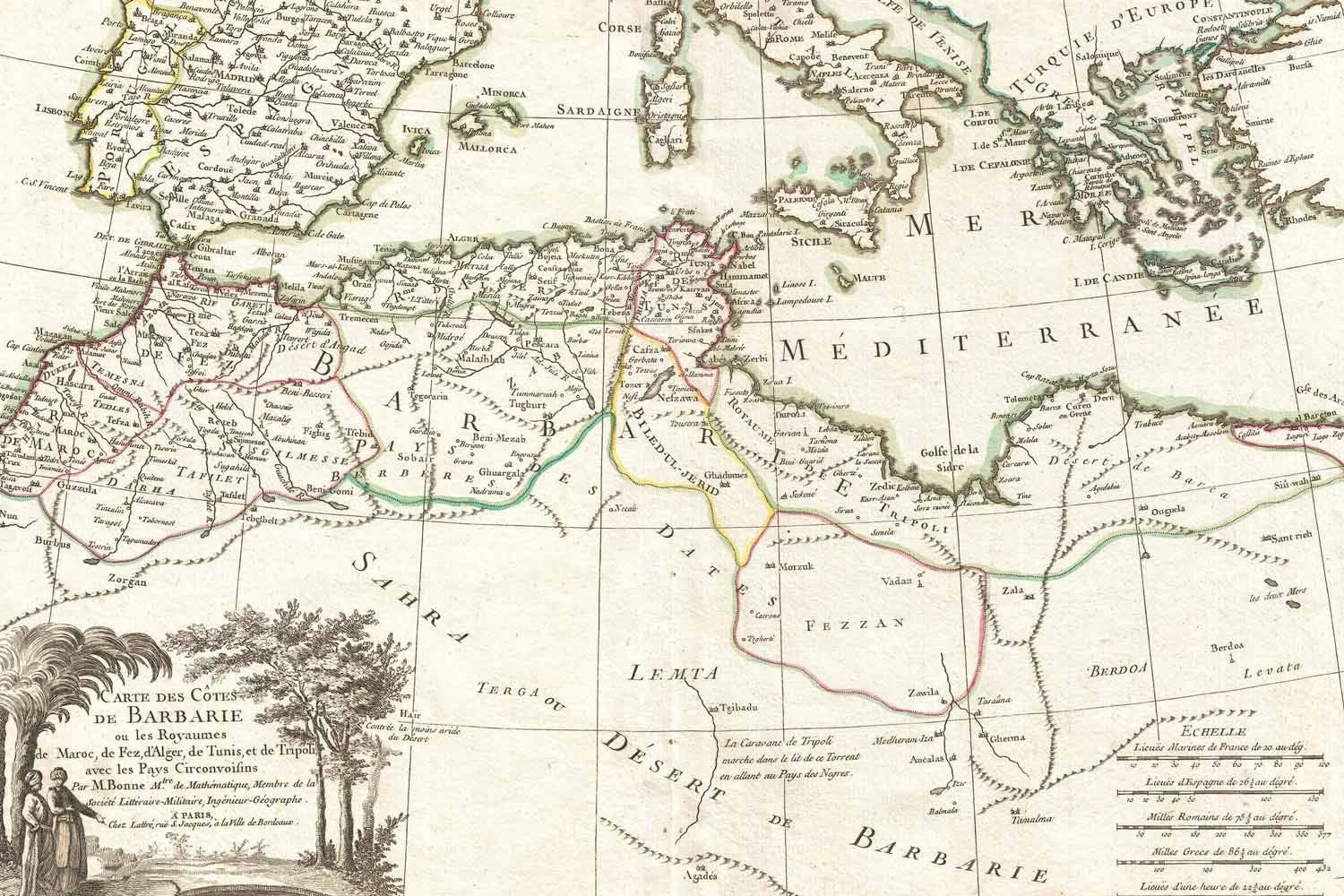The Barbary Wars, Part 5: U.S. Navy Triumphant in Tripoli
After the city of Derne fell to General William Eaton’s expedition on April 27, 1805, Yusef Karamanli, the Pasha of Tripoli, knowing his capital city was next, again sent word to Tobias Lear, the American Consul to Algiers that he wanted peace. The final terms included an exchange of prisoners and the end of all tribute payments to Tripoli, the first agreement of its kind ever reached with a Barbary State.
The Barbary Wars, Part 4: To the Shores of Tripoli
In 1804, William Eaton, the former Consul to Tunis, hatched a plan to end the war with Tripoli. Eaton proposed to invade Tripoli, drive the Pasha, Yusef Karamanli, from the throne, and replace him with his older brother Hamet. In the process, all American prisoners would be released, and all tribute demands ended. In early March 1805, Eaton began a 400-mile trek to his first objective, the city of Derne, an important Tripolitan seaport east of the capital. Following a harrowing fifty-four-day march, the army arrived on the outskirts of town and Eaton sent surrender demands into the city to which the Governor responded, “My head or yours.” Taking that as a “no,” Eaton launched his attack on April 27, while three ships from the Mediterranean squadron fired on the town.
The Barbary Wars, Part 3: “The Most Daring Act of the Age”
In January 1804, Captain Edward Preble sent Lieutenant Stephen Decatur the following instructions: “It is my order that you proceed to Tripoli…enter that harbor in the night, board the Philadelphia, burn her and make good your retreat with the Intrepid.” The plan was audacious and filled with risk as the Philadelphia was surrounded by a dozen Tripolitan warships. On the evening of February 16, Decatur entered the harbor and the Intrepid slowly drifted towards the Philadelphia, whose guards hailed the ship asking its intention. Decatur’s Sicilian pilot stated his ship had lost its anchor in the storm and requested permission to tie his ship to theirs for the night and they agreed.
The Barbary Wars, Part 2: The Philadelphia is Lost
On May 10, 1801, Tripoli declared war on the United States, hoping to coerce President Thomas Jefferson to increase tribute payments, but Jefferson felt the honor of the United States was at stake and he refused. Instead, Jefferson sent Commodore Richard Dale and a small fleet of American frigates to impose a blockade of Tripoli. In September 1803, to better prosecute the war, additional warships were sent to the Mediterranean under the command of Captain Edward Preble along with a star-studded cast of future naval heroes including Oliver Hazard Perry, Issac Hull, Stephen Decatur, and John Rodgers. But before Preble’s fleet was on station and aggressive action could be taken, one of the American ships, the frigate USS Philadelphia under Captain William Bainbridge, met with disaster.
The Barbary Wars, Part 1: Pirates of the Mediterranean
For several centuries, the northern crescent of Africa had been controlled by the Ottoman Empire and consisted of several puppet states including Morocco, Algeria, Tunis, and Tripoli. Each of these Muslim provinces, known collectively as the Barbary States, derived their main revenue from seizing unarmed merchant ships, taking the crews prisoner, and offering to return them for a ransom payment, or, failing that, selling them into slavery. After the American Revolution, as American merchantmen began to ply the waters of the Mediterranean without the protection of the Royal Navy, they suffered the same fate.










